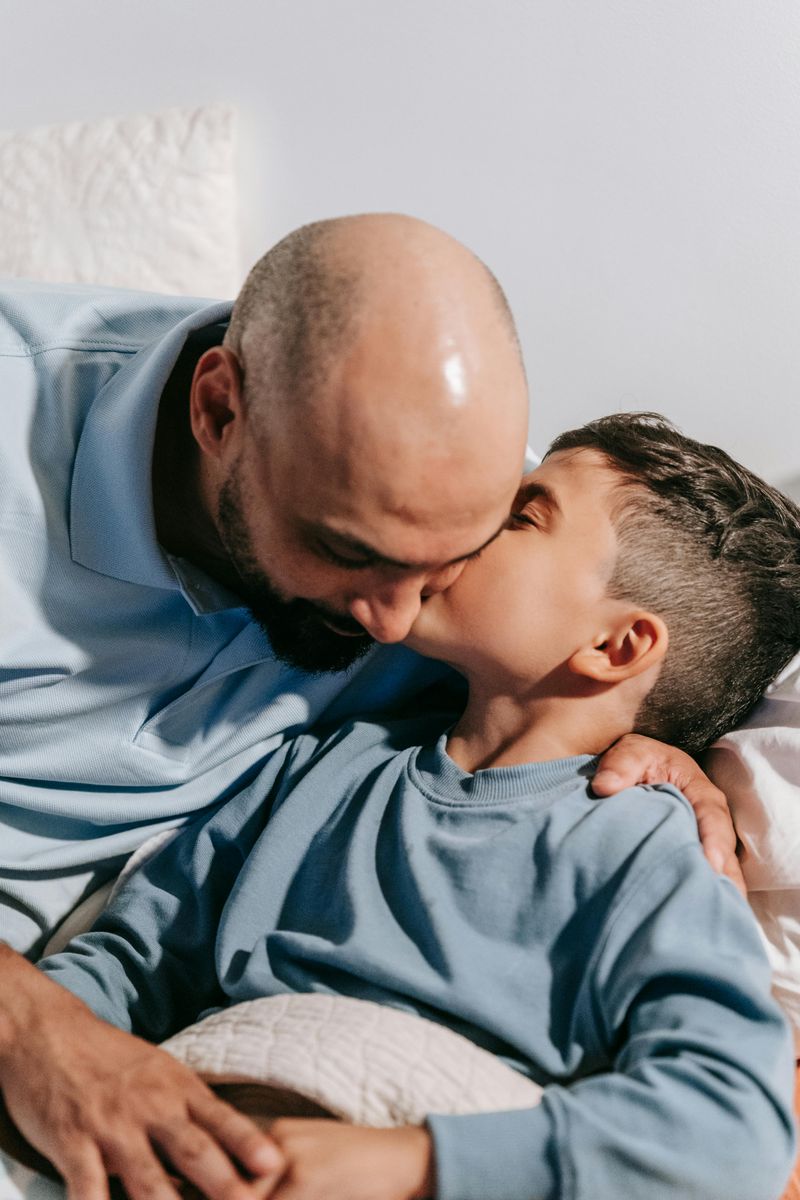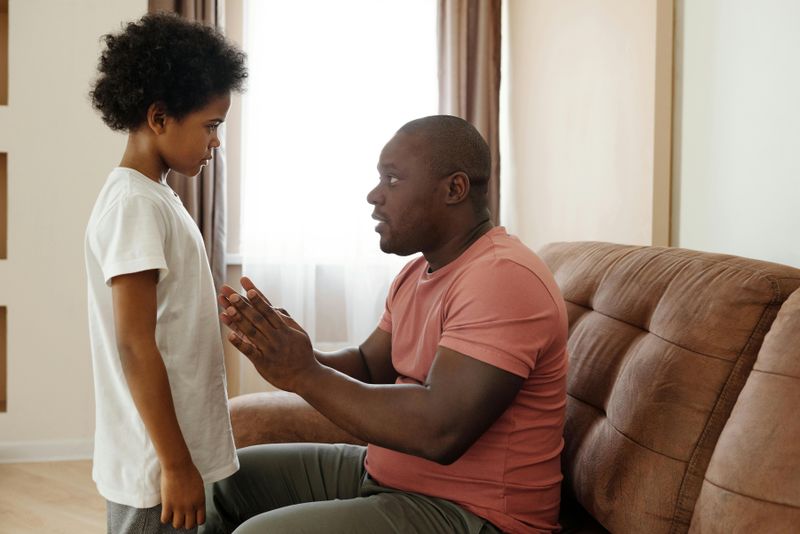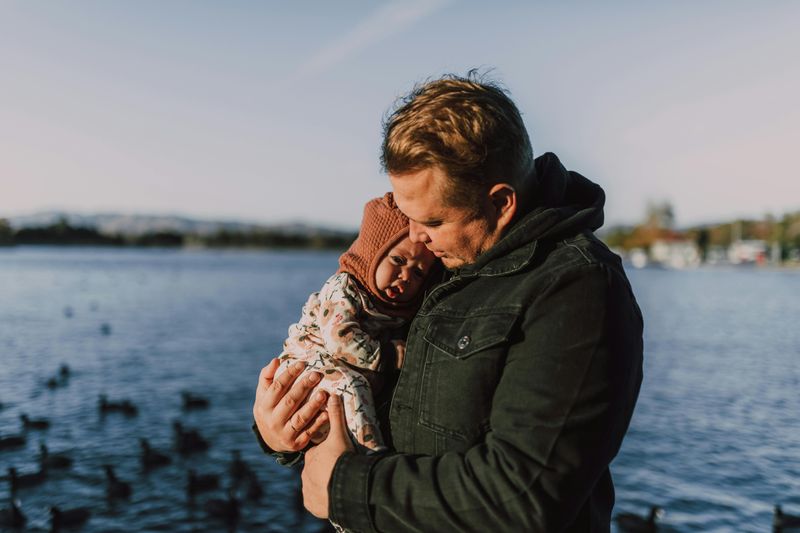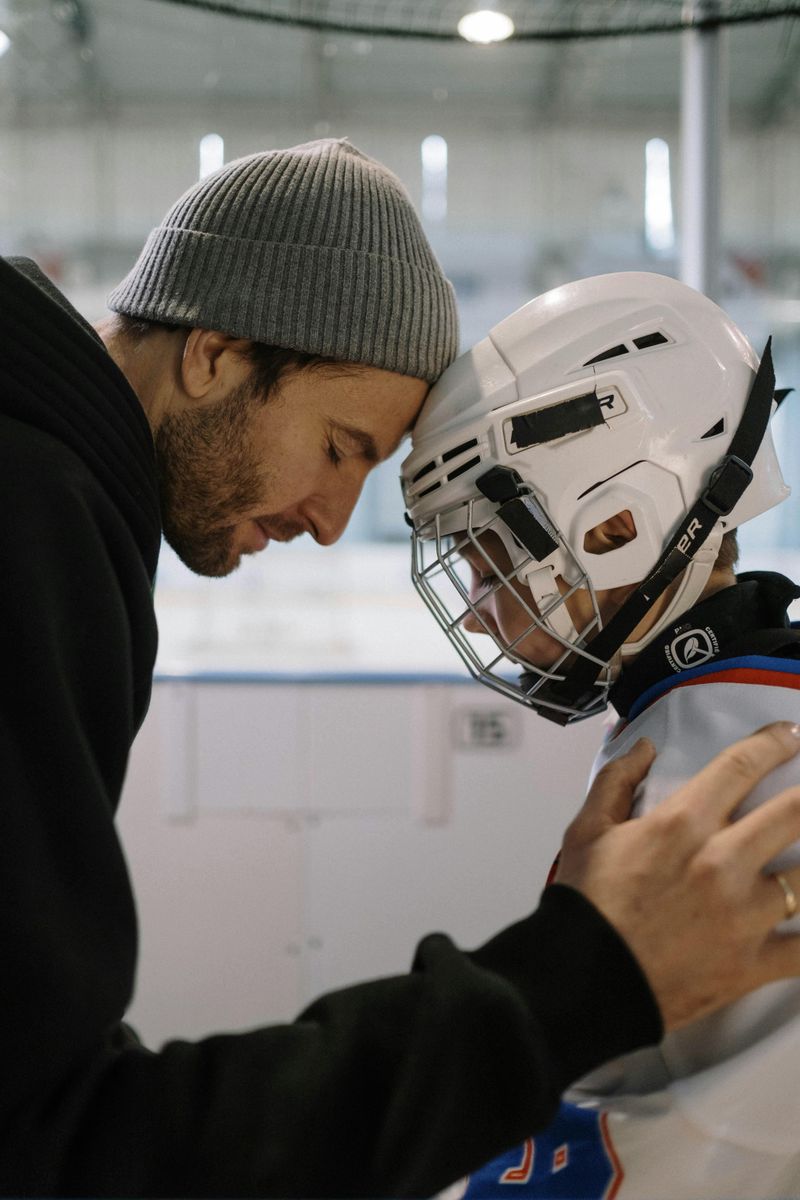Words have the power to shape a child’s world. When spoken by a parent, certain phrases can leave an indelible mark on a child’s heart and mind. Whether these words uplift or discourage, their impact can resonate throughout a child’s life. The way parents communicate with their children plays a crucial role in building self-esteem, resilience, and emotional intelligence. In this blog post, we explore 15 powerful phrases that have the potential to create lasting memories. These phrases, whether whispered in moments of quiet comfort or spoken firmly during life’s challenges, remind us of the profound influence parental words can have. Let’s explore these impactful expressions.
“I believe in you”

Imagine a world where every child hears the words, “I believe in you.” These four words can transform doubt into determination. Parents who express belief in their child’s capabilities instill confidence that can carry them through challenges. This phrase is a cornerstone of encouragement, allowing children to take risks and explore their potential fearlessly.
They begin to see themselves through a lens of possibility, understanding that failure is not the end but a step toward growth. This parental vote of confidence is a reminder that their unique abilities are valued and celebrated.
In moments of uncertainty, these words echo as a guiding light, reinforcing resilience and self-worth. The impact of belief is immeasurable and lifelong.
“I’m proud of you”

“I’m proud of you” is a declaration that resonates deeply within a child’s soul. It is more than just a compliment; it’s an affirmation of their efforts and achievements. When parents acknowledge the hard work and dedication of their children, it fosters a sense of value and accomplishment.
This phrase builds a foundation of self-esteem, encouraging children to continue striving for excellence. The pride expressed by a parent becomes a cherished memory, a moment when their efforts were truly seen and appreciated.
In a world filled with expectations, knowing that they have made their parents proud is a significant source of motivation and joy for a child.
“You are loved”

“You are loved” is a phrase that embodies unconditional acceptance. These words assure children of their place in the family and the world. Knowing they are loved provides a sense of security and belonging that is crucial for healthy development.
This affirmation helps children weather life’s storms, promoting emotional resilience. It reinforces that love is not conditional on success or behavior but is a constant presence in their lives.
Hearing these words regularly strengthens the bond between parent and child, fostering an environment of trust and openness. It’s a powerful reminder of their inherent worth and the endless love that surrounds them.
“It’s okay to fail”

In a society that often equates success with self-worth, “It’s okay to fail” is a revolutionary statement. This phrase teaches children that failure is a natural part of learning and growth. It encourages them to embrace challenges without fear.
Parents who normalize failure instill resilience and adaptability in their children. These words shift the focus from perfection to progress, allowing children to approach tasks with curiosity and determination.
Understanding that perfection is not required, children learn to appreciate their efforts and persistence. “It’s okay to fail” becomes a mantra that emboldens them to pursue goals with courage and confidence.
“I am here for you”

“I am here for you” offers solace during moments of vulnerability. It reassures children that they are not alone, providing emotional support and understanding. This phrase signifies a parent’s unwavering presence and readiness to listen.
In times of distress or uncertainty, knowing they have a safe haven in their parent’s embrace empowers children to navigate their emotions. It fosters open communication and trust, essential components of a strong parent-child relationship.
This assurance of support strengthens the child’s ability to cope with life’s challenges, knowing they have an anchor in their parent. It is a comforting reminder of their connection and the love that binds them.
“You make me happy”

“You make me happy” is an expression that fills a child’s heart with joy and belonging. It validates their presence and contributions to the family dynamic. Hearing this phrase affirms that their individuality and actions are appreciated.
Such words create a positive environment, encouraging children to express themselves freely. It strengthens their self-esteem and reminds them that their presence is cherished.
In a world that often focuses on achievements, knowing they bring happiness just by being themselves is a profound message. It nurtures a sense of fulfillment and joy, reinforcing the bond between parent and child through shared happiness.
“I’m sorry”

“I’m sorry” is a powerful phrase that models accountability and humility for children. It demonstrates that even parents make mistakes and value honesty in their relationships. This apology fosters mutual respect and understanding.
Children learn the importance of owning up to their actions and the strength it takes to apologize. It encourages open dialogue and healing, reinforcing that mistakes are opportunities for growth.
This expression of remorse shows that relationships are built on communication and kindness. Hearing “I’m sorry” teaches children to value their feelings and those of others, cultivating empathy and emotional intelligence.
“You are unique”

“You are unique” is a celebration of individuality and self-expression. This affirmation encourages children to embrace their distinct qualities and talents. It highlights the beauty of diversity and the importance of authenticity.
Parents who honor their child’s uniqueness promote self-discovery and confidence. These words inspire children to pursue their passions without conforming to societal norms.
Understanding their uniqueness fosters a sense of pride and belonging. It empowers them to build an identity that reflects their true selves, appreciating the differences that make them special.
“Thank you”

“Thank you” is a phrase that expresses gratitude and recognition. When parents thank their children, it instills a sense of value and contribution within the family. It teaches courtesy and appreciation.
This simple acknowledgment reinforces positive behavior and encourages cooperation. Children learn that their efforts are noticed and appreciated, building self-worth and respect for others.
Gratitude becomes a shared experience, enhancing family bonds and promoting a harmonious environment. These words nurture a culture of appreciation and kindness, essential elements of a loving home.
“Trust yourself”

“Trust yourself” is an empowering phrase that encourages self-reliance and confidence. It assures children of their ability to make decisions and solve problems independently.
Parents who emphasize self-trust foster critical thinking and resilience. These words guide children in developing an internal compass, helping them navigate life’s complexities.
Trusting oneself becomes a foundation for personal growth and exploration. It inspires courage and adaptability, allowing children to embrace new experiences and challenges.
“You are enough”

“You are enough” is a statement of acceptance and validation. It reassures children that they are valued just as they are, without the need to prove themselves.
This affirmation counters societal pressures and expectations, promoting self-acceptance and inner peace. Parents who convey this message nurture self-worth and authenticity in their children.
Hearing these words provides comfort and confidence, reminding them that they are worthy of love and respect. It fosters a healthy self-image and resilience in the face of life’s challenges.
“How can I help?”

“How can I help?” is a question that opens doors to collaboration and understanding. It signifies a parent’s willingness to assist and support without judgment.
This invitation encourages children to express their needs and seek guidance. It fosters independence and problem-solving skills, teaching them the value of asking for help.
Parents who offer assistance without imposing solutions promote self-reliance and confidence. These words create a supportive environment where children feel valued and understood.
“You can do it”

“You can do it” is a phrase of empowerment and motivation. It instills confidence and determination in children, encouraging them to pursue their goals with perseverance.
Parents who express belief in their child’s abilities inspire a can-do attitude. These words motivate children to overcome obstacles and strive for success.
Hearing this encouragement provides a boost of energy and optimism. It reinforces their capability to achieve and grow, creating a foundation of self-assurance and resilience.
“Let’s talk about it”

“Let’s talk about it” is an invitation to open dialogue and understanding. It encourages children to express their thoughts and feelings freely.
Parents who foster communication create a safe space for sharing and connection. These words promote trust and empathy, essential for strong relationships.
This phrase empowers children to articulate their emotions and seek solutions. It builds confidence in their ability to communicate and problem-solve effectively.

Comments
Loading…